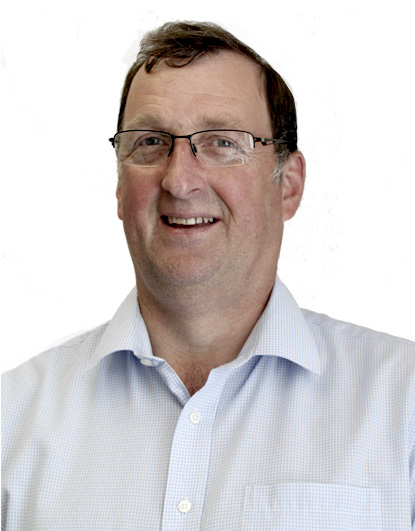SCIENCE
GCSE Science Revision Resources
|
|
|
Meet the Science Team
Miss Emma Hagan (Head of Department)
Hello and welcome to the Science Department at Plympton Academy.
My name is Miss Hagan and I am Head of this amazing department.
I have been teaching for 14 years and have worked at three other schools prior to Plympton Academy. I have had a range of responsibilities during my teaching career from KS3 Science Coordinator to Initial Teacher Training Coordinator and I am very much looking forward to this new role at the Academy.
My background is in Biochemistry and Human Biosciences which I studied at University. I went on to further education where I linked Citizenship and Science, with particular interest in the studies of Zoology at Masters level. In addition, I studied the ‘Neurology of Pain’ with particular focus on the bodies adaptability to pain in different contexts which was extremely interesting. I teach all three Sciences to GCSE level and specialise in Biology and Chemistry at A Level.
In my spare time I like exploring different walks with my Labrador Max. I play netball in the prem A Plymouth and District league and I love to drive.
I very much look forward to answering any Science questions that you may have and I hope to inspire future Scientists to ask questions, discover, explore and invent.
Mrs Donna Taylor (Transition Lead)
I am Mrs Taylor and I am a local girl. I attended Estover Comprehensive before studying for a degree in Biological Sciences at the University of Plymouth. I went on to study at Bath for my PGCE and the University of York to gain The Certificate in Chemistry Education (Second Specialism). I spent 23 years teaching Science across three counties in the UK and in New Zealand.
I have a passion for how and why things in the world around us work and I love the outdoors. I have 4 children, 3 chickens, 2 ducks, 2 rats and a dog - they keep me busy!
Mr Alfie Suter
I am Mr Suter. I became a Science Teacher because when I was doing my A Levels I had an inspirational Biology Teacher. He made Science seem like the most interesting thing in the world. I achieved a first class honours degree in Exercise and Sport Sciences from the University of Exeter. I have a particular interest in Exercise Physiology, Sport Psychology and Nutrition. To me, Science is a fascinating subject and I hope I can convince you of this too.
Mrs Zea Strachan
Science has always been a passion. From an early age I have been asking questions about what I observed around me. I was lucky enough to have two inspiring teachers that taught me that Science not only allowed me to answer those questions but gave me tools and skills to discover more. When applying to University I decided I wanted a course that allowed me to study a broad range of subjects in the first year but then specialise in Chemistry for the final two years so embarked on a degree in Environmental Science. It was during this time that I discovered the love of sharing knowledge and the challenge of explaining ideas to others, seeing them become as passionate as myself and discovering the beauty of the subject that fascinates me.
Dr Philip Knight
I am Dr Knight. I studied Science at the University of Birmingham and then the University of Oxford. This means I have two degrees, and the second degree was a PhD, which allows me to use the title 'Doctor'. Don't be confused - if you are ill don't come to see me - make an appointment with your GP instead! I have always loved science because it makes sense of the world about us. In my specialist area - Physics - knowing a few key ideas allows you to understand most of what happens around us, from electricity to space, from tiny atoms to huge galaxies. That's why learning science is such a powerful thing. In my spare time I run and cycle around the roads and lanes of Devon.
Mr Robert Staniforth
I left school after post 16 having studied Maths. Further Maths, Physics and Chemistry to A level and went into industry where I studied further through day release to get an HNC in Chemistry along with other qualifications to enable me to become a member of the Royal Society of Chemistry.
I worked as a Product Development Chemist, developing and modifying Industrustrial Lubricants at a company called Acheson Colloids who became a subsidiary of ICI. I did this for 24 years working with such companies as Rolls Royce, London Underground and many others. I then led a small team of purchasers / planners working for Acer Computers making sure that the repair centers across Europe, Middle East and Africa had enough spare parts to repair any faulty machines.
In my spare time I have a 50 year old classic Triumph car which I run and maintain.
Mr Joe Wellerd:
I’m Mr Wellerd and I’m the Head of Physics. Not only is physics my favourite subject to teach but I am surrounded by it in my passions outside school.
I studied Oceanography at university and then a master’s degree in Marine Renewable Energy. After that I spent a lot of time using my physics knowledge to work in many careers including as a carpenter and marine renewable energy consultant. My favourite career before teaching was as a professional sailor, the knowledge I gained from my physics studies gave me an edge over the competition, competing around the world for Great Britain and winning events such as National championships in France.
Physics comes up in every aspect of my life outside of school as well as within. I use my knowledge of waves in surfing, gravitational potential energy in mountain biking and engineering in the work I carry out on my cars.
I find my knowledge of physics incredibly useful in life and I’m looking forward to helping you learn about the subject I love and how you can use it in your lives.
Ms Hazel Lethbridge:
My name is Mrs Lethbridge and I am Head of Biology.
I have been teaching for nearly 20 years and have worked at four other schools prior to Plympton Academy.
My background is in Plant Sciences which I studied at the University of Plymouth. I teach all three Sciences to GCSE level and specialise in Biology at A Level.
In my spare time I like exploring different parts of the country in my van, kayaking, paddleboarding and most other water related activities.
My love of science and passing that enthusiasm on to the next generation I find a great privilege along with working with some of the most amazing young people in our city.
Tim Walker:
Hello, I’m Dr Walker. I remember becoming interested in science during my own schooldays. The terminology and equations seemed quite exotic to me and I was impressed by the way science helps us to understand the world. I originally studied Chemistry at the University of Oxford and was particularly interested in the way in which ideas from Physics can be applied in Chemistry. I now mainly teach Physics which I am very happy about.
I have also done further studies which involved Philosophy of Science, exploring how scientific knowledge can interact with other forms of knowledge to help us to
make sense of the world around us. This making sense of things is something which has always been important to me and continues to this day.
I am originally from the northeast, but have lived in Devon for nearly 10 years now. In my spare time I play the piano and the organ, and I enjoy exploring Dartmoor and the local beaches with my family
Ms Sarah Shepperd:
I am Miss Sheppard, for as long as I can remember I have always been intrigued and asking why? Why does this happen? Why does this behave the way that it does? I have a passion to find out why the world around us works the way that it does. I found that the more you ask why the smaller you have to get, all the way down to tiny atoms. This is why I picked Physics and Chemistry at A-level. I then went onto complete a Chemistry degree at Plymouth University.
In my spare time I love to read and go for long walks with my dog Luna.
I hope I can inspire more people to ask Why? And discover more about the world around them.
Ms Chloe Doyle:
My name is Chloe Doyle and I have always loved Science. I joined Plympton Academy in 2021 and love it here. My passion for Biology started at a young age and continued into my adult life, my particular area of interest is Human Biology, so anything linked to how we as humans work. In my spare time I enjoy spending time at the beach, paddleboarding and exploring beautiful Devon.
Mr Adam Green:
Hi there, my name Is Mr Green and I am a Science Technician. After finishing A-Levels, I decided to relocate from Liverpool to the beautiful city of Plymouth to complete my bachelor’s degree in Chemistry at the University of Plymouth. During my final year of study, I specialised in the photodegradation of pharmaceuticals with a specific interest in how they degrade in varying aquatic systems.
I spend most of my spare time catching up with my friends from University and Liverpool, as well as attending to my demanding and energetic German Shepherd who loves his walks
Science in Key Stage 3
Our bespoke KS3 Science course equips students for the rigour of GCSE Science and, as such, develops scientific working skills alongside the theory that supports transition to KS4 at the end of Year 9.
Over the three years of KS3, students will learn the fundamentals of the three science disciplines of Biology, Chemistry and Physics through small units umbrellaed under an overarching concept. This allows students to build on previous knowledge throughout the course, with regular assessment to monitor academic progress (please see our curriculum map for further detail). It is our aim to develop students' curiosity for the world around them and to leave KS3 fully equipped for independent learning on their journey through KS4.
Science in Key Stage 4 (GCSE)
We begin our GCSE journey in Year 10 at Plympton Academy.
KS4 Science spans two years (Yr 10-11) and all GCSE assessments take place in May/June of Year 11.
We follow the AQA Combined Science course where students achieve two grades at the end of year 11.
Throughout the course there is a practical element. This is no longer examined as a coursework element. Instead, questions relating to practicals, undertaken during lessons, appear throughout each exam paper.
There are six exam papers sat at the end of Year 11; two Biology, two Chemistry and two Physics assessments.
See the AQA link for full specification details.
Science in Key Stage 5
At Plympton Academy we have four options for further education and exploration in the Sciences.
- A Level Biology
- A Level Chemistry
- A Level Physics
- Level 3 BTEC Applied Science
Please see further information below on the courses available and the GCSE requirements for these courses.
KS5 Biology
This is a two year course leading to an A Level qualification.
Biology is a fascinating course which builds upon GCSE and covers a wide variety of topics, including cell structure and microscopy, the anatomy and physiology of mammals and plants, Biodiversity and Ecology as well as the biochemistry of respiration and photosynthesis. It develops statistical skills and challenges your understanding.
A Level Biology can lead to a huge variety of career options and it is always highly valued as one of the hardest and core A Level subjects.
If you want to develop and nurture your love of the living world, whilst building a variety of analytical and thinking skills, then Biology is the subject for you.
Minimum GCSE entry requirements
Combined Science (Trilogy) - grade 6-6
Maths - grade 6
English - grade 6
Exam board and code
Teaching Time
10 hours of teaching time per fortnight.
Expectations for homework and revision - 15 hours per week
Modules
- Module 1 - Development of practical skills in Biology
- Module 2 - Foundations in Biology
- Module 3 - Exchange and Transport
- Module 4 - Biodiversity, Evolution and Disease
- Module 5 - Communication,Homeostasis and Energy
- Module 6 - Genetics, Evolution and Ecosystems
Assessment
Papers will be sat in May/June of Year 2 (Year 13).
- Paper 1 - Biological Processes - 2hr 15min - Modules 1, 2, 3 and 5 (37% of total A Level)
- Paper 2 -Biological Diversity - 2hr 15min - Modules 1, 2, 4 and 6 (37% of total A Level)
- Papers 3 - Unified Biology - 1hr 30min - All modules (1-6) (26% of total A Level)
- Paper 4 - Practical endorsement - 12 practicals will be sat over the course of the two year A Level. These skills will be assessed by your teacher(s) and the practical endorsement will be awarded if these skills are met and completed. In each paper there will be questions based on the 12 practicals completed.
Careers
Research scientist, Pharmacologist, Biologist, Ecologist, Biotechnologist, Forensic Biologist, Neurologist, Nature Conservation Officer, Biomedic, Medicine, Dentistry, Dietetics, Physiotherapy, Veterinary Medicine...
KS5 Chemistry
This is a two year course leading to an A Level qualification.
Chemistry is everywhere!
Results in Chemistry can be groundbreaking, colourful, explosive and sometimes difficult to see.
Chemists use their experiments and knowledge to develop medicines, foods, fabrics and other materials from neon lights to shatterproof glass. They also use it to study the world around us, from leaf colour change to analysing invisible matter.
Chemistry is often known as the ‘central science’ because it helps to connect physical sciences (Physics and Mathematics) with applied sciences (Biology, Medicine and Engineering). If you are interested in the Chemistry of inorganic and organic matter and looking for an exciting and interesting challenge then Chemistry is definitely the subject for you!
Minimum GCSE entry requirements
Combined Science (Trilogy) - grade 6-6
Maths - grade 6
Exam board and code
Teaching Time
10 hours of teaching time per fortnight.
Expectations for homework and revision - 15 hours per week
Modules
- Module 1 - Development of practical skills in Chemistry
- Module 2 - Foundations in Chemistry
- Module 3 - Periodic Table and Energy
- Module 4 - Core Organic Chemistry
- Module 5 - Physical Chemistry and Transition Elements
- Module 6 - Organic Chemistry and Analysis
Assessment
Papers will be sat in May/June of Year 2 (Year 13).
- Paper 1 - Periodic Table, Elements and Physical Chemistry - 2hr 15min - Modules 1, 2, 3 and 5 (37% of total A Level)
- Paper 2 - Synthesis and Analytical Techniques - 2hr 15min - Modules 1, 2, 4 and 6 (37% of total A Level)
- Papers 3 - Unified Chemistry - 1hr 30min - All modules (1-6) (26% of total A Level)
- Paper 4 - Practical endorsement - 12 practicals will be sat over the course of the two year A Level. These skills will be assessed by your teacher(s) and the practical endorsement will be awarded if these skills are met and completed. In each paper there will be questions based on the 12 practicals completed.
Careers
Chemistry will help you in all STEM (Science, Technology, Engineering and Mathematics) subjects and careers, and more besides. Examples include: Medicine, Environmental Science, Engineering, Nanotechnologist, Clinical Scientist, Dentistry, Toxicology, developing perfumes and cosmetics, Teaching, Software development and research.
There are many career opportunities available and Chemistry is highly favoured in all further education platforms.
KS5 Physics
This is a 2-year course leading to an A Level qualification. It is a fascinating course which builds on GCSE and covers a wide variety of topics in Physics, including Space Physics and Medical Physics. It develops determination, mathematical skills and problem-solving abilities, and can lead to a huge range of careers options. A Physics A Level is highly valued by employers, trainers and universities alike. It can lead to careers in almost any industry, from engineering and medicine to accountancy, business and education. If you want to develop your thinking skills, your earning potential and have a sound understanding of the world around you, this is the course to choose!
Minimum GCSE Entry Requirements
GCSE Combined Science - Grade 6-6
GCSE Mathematics - Grade 6
Exam board and code
Teaching Time
10 hours of teaching time per fortnight.
Expectations for homework and revision - 15 hours per week
Modules
- Module 1 - Development of practical skills in Physics
- Module 2 - Foundations in Physics
- Module 3 - Forces and Motion
- Module 4 - Electrons, waves and photons
- Module 5 - Newtonian world and astrophysics
- Module 6 - Particles and medical Physics
Assessment
Papers will be sat in May/June of Year 2 (Year 13).
- Paper 1 - Modelling Physics - 2hr 15min - Modules 1, 2, 3 and 5 (37% of total A Level)
- Paper 2 - Exploring Physics - 2hr 15min - Modules 1, 2, 4 and 6 (37% of total A Level)
- Papers 3 - Unified Physics - 1hr 30min - All modules (1-6) (26% of total A Level)
- Paper 4 - Practical endorsement - 12 practicals will be sat over the course of the two year A Level. These skills will be assessed by your teacher(s) and the practical endorsement will be awarded if these skills are met and completed. In each paper there will be questions based on the 12 practicals completed.
KS5 Applied Science
Requirements of the course
Combined Science Trilogy - Grade 5-5 or above
Mathematics - Grade 5
Exam board
Pearson
Units studied
Year 12
|
Unit studied |
How is it assessed? |
|
Unit 1- Principles and applications of Science -90 GLH |
3 x 40 minute exams. 1 biology 1 chemistry 1 physics. |
|
Unit 2- Practical scientific procedures and techniques -90 GLH |
4 Assignments-. 3 are based around specific practical techniques. 1 is a review of the skills developed across the previous 3 assignments. |
Year 13
|
Unit studied |
How is it assessed |
|
Unit 3- Scientific investigation skills 120 GLH |
1 exam (90 mins)- which is based around practical skills. There is a practical investigation which has to be undertaken prior to the exam. |
|
Unit 8- Physiology of human body systems 60 GLH |
3 Assignments. 1. Muscular-skeletal system. 2. Lymphatic system 3.Digestive system. |
Possible Careers
Past students who studied Applied Science have gone onto careers in nursing, paramedicine, physiotherapy and many more.
Teaching Team
You will have two/three teachers who will deliver the course material and assess your work.
Miss Hagan will internally verify a sample of assignment work completed by the class.
A Standards Verifier (external person appointed by Pearson) will check a sample of assignment work to ensure that national standards are being met.
Teaching and learning
This will be done through delivery of structured lessons, informal and formal assessments and external assessments.
You will be able to access support in the same way that you would do for any other qualification in school.
It is important that you seek support when needed.
Assessment and Verification
All BTEC qualifications are regulated by rules regarding the management of the quality of assessment of learning and the awarding of grades. You will not be expected to complete a formal assessment to demonstrate your understanding of a topic, or part of a topic, until all relevant teaching has been completed.
Internal Assessment
The content of the assessment will be outlined on an Assignment Brief; the design of these will be explained when relevant in the programme delivery. For every assessment there will be a clear deadline by which the work must be submitted to your assessor (teacher). There is a submission policy in place for BTEC assignments. However, it is also understood that under certain conditions it might be appropriate to allow a learner an additional opportunity to achieve more.
You must understand that for the Lead Internal Verifier of your course to be able to authorise a resubmission these conditions must be met:
-
A learner has handed in their initial submission by the published deadline (or applied for an extension in line with published procedures)
-
A learner has confirmed that their submission was their own work and/or appropriately acknowledged another’s work
-
The assessor has authenticated the learner’s submission and believes that the learner can improve their submission independently with no further teaching
Your work will be marked within two weeks, following that a sample of the assessments will be checked by another member of the teaching team to ensure the grading is fair and accurate. Once this has been completed you will be given your grade for that assignment and feedback which will help you to improve and develop your skills.
External Assessment
To meet the needs and feedback of employers and Higher Education there has been an increase in the rigour and robustness to the way BTECs are assessed. This comes through the introduction of external assessment i.e. Pearson formally marks and grades external units. The aim of external assessment is to help prepare learners to fulfil their potential in either the world of work or progress to further study.
The external units on your qualification will be assessed through a written examination which lasts for 1.5 hrs.
Malpractice/plagiarism
You will be asked to sign a learner declaration for each piece of coursework submitted. This is you signing to say that the work submitted is your own.
You need to be aware of plagiarism and ensure that your work is your own.
In all cases your teacher will advise you on how work should be presented and on appropriate sources of information that could be used.

